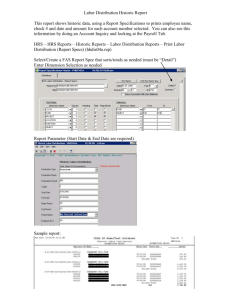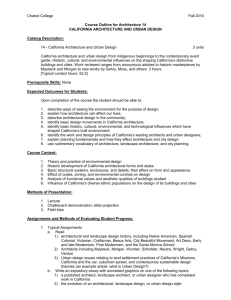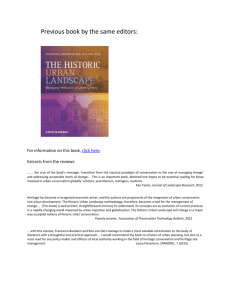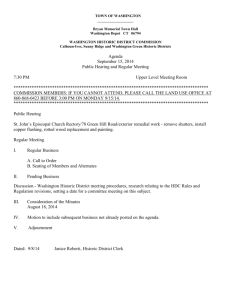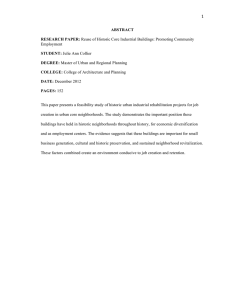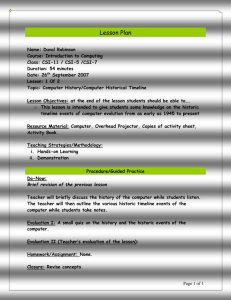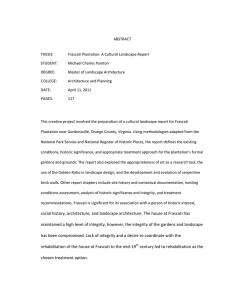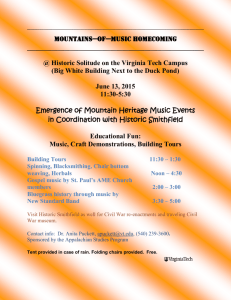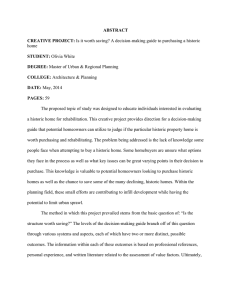Using SIMPPLLE to address questions:
advertisement
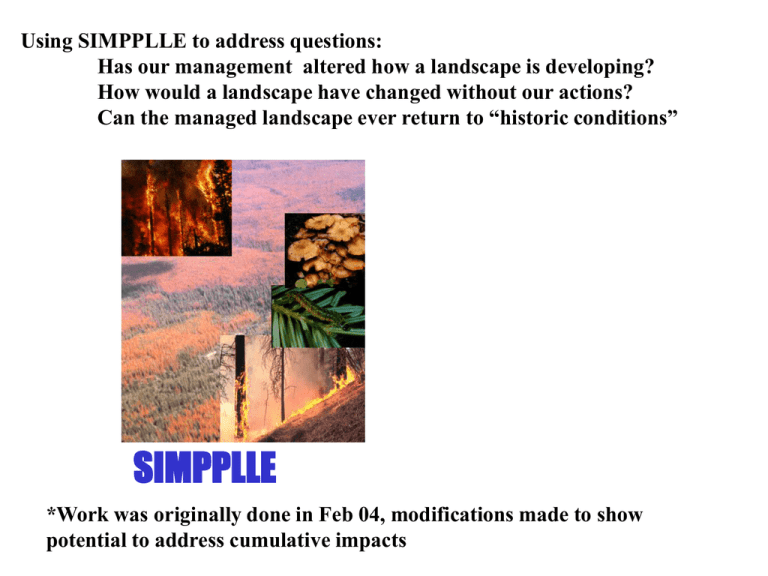
Using SIMPPLLE to address questions: Has our management altered how a landscape is developing? How would a landscape have changed without our actions? Can the managed landscape ever return to “historic conditions” SIMPPLLE *Work was originally done in Feb 04, modifications made to show potential to address cumulative impacts Using FRAGSTATS with SIMPPLLE output to provide quantification of landscape patterns. Three metrics selected for comparison purposes only SIMPPLLE Fortine drainage – Kootenai National Forest approximately 25,000 acres SIMPPLLE Current landscape is the result of significant level of clearcut harvest systems. SIMPPLLE How do Fragstats metrics of the current landscape compare to what existed prior to harvests What will be the metrics of a future landscape as a result of the harvesting and the continued application of fire suppression? Would the metrics of a future landscape without the harvesting (but with disturbance processes) be different? What are possible values of historic landscapes that include levels of mountain pine beetle and fire processes? How different is the future landscape as described by the metrics from possible historic landscapes? SIMPPLLE Current size class converted to a grid of 5 acre cells Very large Medium Openings Large pole Future size classes from a 50 year SIMPPLLE simulation with harvest (5 acre cells) Very large Medium Openings Large pole Preharvest size classes converted to 5 acre cells Very large Medium Openings Large pole need to simulate forward without harvest but with expected natural processes Very large Medium Openings Large pole Preharvest size classes converted to 5 acre cells average mpb in lp - current conditions Simulated mpb activity that has occurred with harvesting. 3000 2500 smpb 1500 lmpb 1000 500 0 1 2 3 4 5 decades average mpb in lp - pre harvest conditions 3000 2500 Simulated mpb activity that would have occurred without harvesting 2000 acres acres 2000 smpb 1500 lmpb 1000 500 0 1 2 3 decade 4 5 average -srf current landscape 500 Simulated stand replacing fire with harvest. 450 400 350 300 250 200 150 100 50 0 1 2 3 4 5 Simulated stand replacing fire without harvest – but with fire suppression. Modeling of fire suppression may be too effective so --- acres srf average - preharvest conditions 500 450 400 350 300 250 200 150 100 50 0 1 2 3 decade 4 5 average -srf current landscape Simulation of fire without suppression showing impact of mpb activity without harvest on the fire processes 500 450 400 350 300 250 200 150 pre-harvest without suppression 100 50 1 4000 3500 3000 2500 2000 1500 1000 500 0 2 3 4 5 STAND-REPLACINGFIRE srf average - preharvest conditions acres acrew 0 1 2 3 decade 4 LIGHT-SEVERITYFIRE 500 450 400 350 300 250 200 150 100 50 0 MIXED-SEVERITYFIRE 5 1 2 3 decade 4 5 Three historic size classes from SIMPPLLE simulations Very large Medium Openings Large pole Created historic starting with preharvest conditions -3 or ic hi st -2 or ic hi st hi st or ic -1 st ar ve pr eh ye Would need to add what the current and a future would be without the past harvest fu t ur e (5 0 cu ar s) 8 6 4 2 0 rre nt index value FRAGSTATS LANDSCAPE METRIC SHAPE_RA With harvest The “shape range” metric for the entire landscape of the current and future fall well below that of any simulated historic landscape. The trend from the current to the future is for a continued decrease. SIMPPLLE With harvest historic -3 historic -2 historic -1 preharvest future (50 years) 4 3 2 1 0 current index value FRAGSTATS CLASS METRICS OPENINGS SHAPE_RA Would need to add what the current and a future would be without the past harvest The harvesting created a class metric for “shape range” greater than any simulated historic value. However the future trend is for a rapid decrease below any simulated historic value. SIMPPLLE historic -3 historic -2 historic -1 preharvest future (50 years) 800 600 400 200 0 current index value FRAGSTATS CLASS METRICS OPENINGS AREA_RA Would need to add what the current and a future would be without the past harvest With harvest The harvesting created a class metric for “area range” greater than any simulated historic value. However the future trend is for a rapid decrease below any simulated historic value. SIMPPLLE
